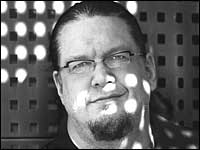I attended a lecture recently on evolution by an ordained rabbi who also happens to be a university biology professor. He maintained that the empirical evidence in favor of the scientific consensus regarding evolution and the age of the universe is overwhelming, but argued very passionately that, far from being a challenge to traditional Judaism, modern science can be seen to fit well with the classical Biblical commentaries of the Talmudic and Medieval eras. He showed how mainstream Judaism has never taken a literal view when reading Genesis and severally criticized the fundamentalist Christians (and more recently, ultra-orthodox rabbis) who reject evolution outright. I found his talk to be refreshing but not necessarily novel. I remember that when I was growing up the vast majority of my teachers and peers each came up with some scheme within his or her own mind to reconcile religious faith with science, since they held both to be correct. I found that in practice, this meant that there was not a great deal of difference in how they approached the natural world compared to atheists, except that they would think "look how marvelous God made the world to be," instead of "look how marvelous geological forces and natural selection have made the world to be." Believers in this kind of "theistic evolution," which holds that God directed natural forces as a means to create human life, can (and do) become successful Biologists and Biomedical researchers. This is in stark contrast to fundamentalists who feel that they have to reject huge swaths of science (cosmology, geology, biology, physics, astronomy, paleontology...) in order to justify a literal understanding of a ancient book. I strongly doubt that such a person could really participate in real research without a huge amount of mental compartmentalization and/or cognitive dissonance.
However, I am not so thrilled by theistic evolution either, even though I used to be a strong believer in it for many years. It is really a compromise, a forced syncrotism for the times when one wants so badly for one's dearly held religious beliefs to be in sync with empirical observations . So while I commend believers who possess the intellectual honesty to say that the evidence backing evolution and the age of the universe is convincing, I wish that they could just take that one further step and see how having a deity is no longer a necessary component. However, I know from experience that there is a huge emotional gap between believing in theistic evolution (and therefore being about to go on with one's regular religious beliefs and practices) compared to taking that final step and becoming an atheist.
On a related note, I've also found a rather lengthy but very well researched letter from a religious Jew which articulates a litany of logical difficulties inherent in belief in the inerrancy of the Bible and Talmud. I've always been especially disturbed by apologists who try to justify statements in the Talmud about spontaneous generation, folk remedies, or astronomy etc. that are currently known to be wrong by saying that "the sages were right then, but now nature has changed." I feel that to claim that, for example, lice really did come grow out of the dirt two thousand of years ago (as was believed by the Greeks) but nature suddenly changed between then and now so that they reproduce sexually just because an text taken to be "received wisdom" says so shows how strongly critical thinking is being suppressed. This is especially ironic considering that the Talmud itself is basically one long exercise in critically analyzing rabbinic dicta.
Thursday, March 8, 2007
Subscribe to:
Post Comments (Atom)

No comments:
Post a Comment